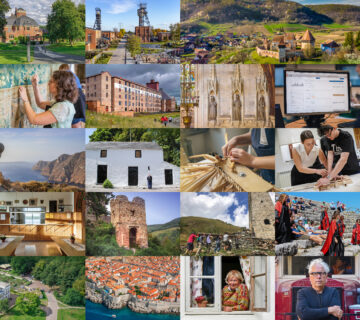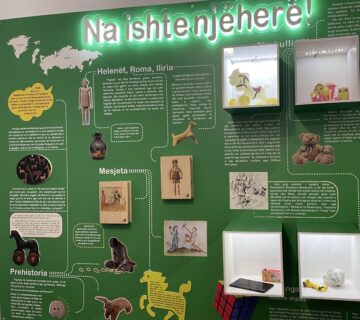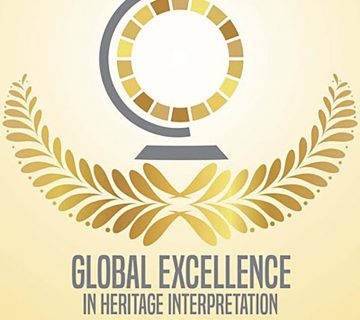This article shares the results from the 2015 survey on the ICOMOS Charter for Interpretation, which identified whether its definitions, objectives and principles were seen as relevant, and whether any required further clarification.
The survey did not require respondents to be members of ICOMOS ICIP (the International Scientific Committee on Interpretation and Presentation of Cultural Heritage Sites), or to have been familiar with the charter prior to filling in the survey. However, respondents were asked to review the charter before participating.
Archaeology was the main activity for the single largest group of respondents (n=100). Only 23 respondents specified their main activity as interpretation.
Lack of familiarity with the charter emerged strongly from the survey. 51% of respondents were not at all familiar with the charter. Only 12% respondents indicated being ‘familiar enough’ with it, and 9% of respondents were ‘very familiar’. The majority of respondents (77%) had not used the Charter previously.
The majority of respondents found that the definitions used in the charter were clear. Some felt that ‘interpretation’ and ‘presentation’ overlapped. While some reasserted Tilden and his definition of interpretation, others felt that the charter was not progressive enough in its understanding of heritage and communities/community values.
The majority of respondents felt that the individual objectives of the charter where either ‘relevant’ or ‘very relevant’ to their professional practice. The objective emerging as least relevant was to develop technical and professional guidelines. The most relevant objective appeared to be to ‘facilitate understanding and appreciation of cultural heritage sites’, which 94% of respondents found either ‘relevant’ or ‘very relevant’. The objective to ‘communicate the meaning of cultural heritage sites’ appeared the second most relevant.
The following chart shows the responses of the 96 respondents who indicated which of the Charter’s objectives would benefit from further clarification and guidance. None of the objectives were marked by more than a third of respondents, indicating broad satisfaction with the clarity of the objectives as they are.
The majority of respondents also found that the principles of the Charter were relevant. The least relevant principle appeared to be ‘Concern for Inclusiveness’. This was followed by ‘Preservation of Authenticity’. The most relevant principle appeared to be ‘Access and Understanding’.
The following chart shows the responses of the 49 respondents who indicated which of the Charter’s principles would benefit from further clarification and guidance. This response rate is too low to make analysis of percentages useful.
Respondents were asked to specify any elements they felt were currently missing from the Charter. Only technology (use of/role), authority, and reconstruction were mentioned twice. All other responses related to unique concepts.
Respondents were asked to rank what should be ICIP’s priorities for the next three years. ‘Raising awareness of the Charter’ emerged as the first priority, followed by ‘develop operational guidelines’. The third priority was ‘Strengthening ties with other professional heritage organisations worldwide’.
The survey has informed ICIP’s strategy, which will now be implemented over the next two years. Beside the above priorities, the committee will also work on guidelines for inclusiveness and authenticity, as well as technology. Thank you to all IE members who participated in the survey.
Nicole Deufel is Vice President for Policy for ICOMOS ICIP. She holds a PhD in Heritage Studies and is currently a heritage consultant in the UK. You can contact her at nicole@nicoledeufel.com. Sue Hodges is President of ICIP and Managing Director of SHP (Sue Hodges Productions Pty Ltd). You can get in touch with him at sue@shp.net.au.
To cite this article:
Deufel, N., Hodges, S. (2016) ‘Results from the recent ICIP survey on the Ename Charter’. In Interpret Europe Newsletter 2-2016, 17
Available online:
https://www.interpret-europe.net/fileadmin/Documents/publications/Newsletters/ie-newsletter_2016-2_summer.pdf




